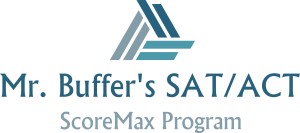Written by Mr. Justin Buffer, MSE, Founder, Owner, and Educational Director, Cambridge Learning Center of NJ
*******************************************


Some more common questions I receive from parents of my SAT students at the Cambridge Learning Center are, “What can I do at home to help my child prepare for the SAT? What do I need to make sure my son or daughter is doing so they can acheive a great score on the test?”
You can understand why this concern is so important since SAT scores are an important barometer that colleges use when they determine whom to admit. For some students and their families, this subject generates a great deal of stress on everybody. Let me go over a few regular, essential practices a student can do to prepare successfully for the SAT.
Flashcards: It is crucial that students are studying their flashcards with grammar rules, vocabulary words, and the essential math rules. Even if they know some of them, just by continuing to learn some of the new ones, a student’s score can improve. It is vital that they know how to practically apply these rules and practice using them. This practice method will aid them in successfully answering a few more questions on the test. Learning new vocabulary words will not only help with vocabulary-based questions but also with comprehending some of the reading passages. An added bonus is that commitment to reviewing these cards will often lead to better grades in school.
Studying Errors and Notes: When students come to Cambridge, we give them what I call “Live work.” This is when we give them real SAT problems to do right in front of us, so we can watch their process, and give them real-time feedback. In class, besides doing Live Work, we provide them with plenty notes, strategies, subject content, and feedback. As a parent, you want to make sure they are reviewing these notes, checking/reviewing their mistakes, and discovering how to avoid them in the future.
Properly Utilizing Practice Tests: With practice tests, they aren’t going to do students any good if they do not look closely at their mistakes. I see many of our students often anxious to try another test, after just getting their score on a progress test, but not necessarily thoroughly reviewing it after they get the grade on it. I know my students and their parents have constantly heard me say, “Students should study their way to success, not test their way to success.” I recently wrote an article on this. Instead of only checking their score, you should encourage them to check the answer section for the explanations to the ones they had wrong or tracing the root and causes of their errors. While it is fine for students to congratulate themselves on what they answered correctly, they should spend time on figuring out why they chose the wrong answers to the others. Doing this is vital to maximal success.
Our Student-Centered Websites: Also, encourage your sons and daughters to make use of the online tools we make available on www.cambridgenjstudents.com. We provide a vocabulary test I created that the students will be directed to take every few weeks to measure their progress. We will soon also offer updated grammar and math practice on this website. The more they utilize these online tools, the better they will do when they take the actual SAT.
Succeeding in the often tricky Evidenced-Based Reading section
One of the sections that students have the most trouble with on the SAT is the Evidenced-Based Reading section. To help with this, they should go back and re-read past reading passages they have worked with. This practice will help them improve their skills concerning content knowledge enrichment. By reading through content they didn’t understand the first time and reviewing their answer choices, students will gain a better understanding why reading passages are set up the way they are. The purpose of this is similar to reviewing the answers to other parts of the SAT – it familiarizes the student with the test. This is such a huge help when they sit down for the actual test. It reduces anxiety, and they know what to expect when they start the exam. We also direct our students to read New York Times articles and other content-based material to backfill the educational material that is tested on the SAT, but not thoroughly taught in school. Students now receive an SAT Content Enrichment packet for this practice.
Understanding the nature of the SAT:
Having our students know how the SAT works is a big part of my SAT teaching and curriculum development philosophy. Standardized tests like this have deception built into them, and this is often a hard pill to swallow for many of our students. The creators of the test design the questions to produce a bell curve of results. Our goal is to help students to see where the deceptions are and to avoid them. I tell people it is like playing chess against someone who is very sharp and constantly trying to outmaneuver you. When you spend more time with someone like this and play more chess against them, you begin to pick up his or her deceptive tendencies and attempts to fool you. That is what we want our students to do with the SAT: quickly recognize when there is a trap set up for them. When they do this, they will definitely test better.
Spending Time Studying and Reviewing: Finally, make sure they are studying an average of at least an hour a night for the SAT. This can be broken up if need be. When they are doing this, coupled with the tutoring we provide at Cambridge and them integrating the directives above, they will be much more likely to meet their goal score. Of course, there is no magic formula. Instead, it is a steady process they have to pursue mindfully.
I hope this article helps you as a parent see the role you can play to aid and supervise your child’s study habits for the SAT. When you ensure that your child is implementing these steps regularly and readily, you will be greatly pleased with the results. Of course, nothing can replace a motivated, driven, and determined student, so your part in creating a context for optimal motivation is also vital. For other questions on these matters, please call us or make an appointment to see me.
